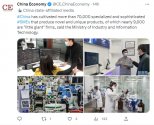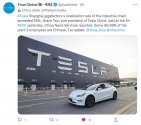State-owned Unicorns.

China strategy is totally different as compared to USA. they are following German model. state/provincial government creating little giants in high tech fields like high end equipment , tools , aerospace , aviation , biomedical , integrated circuit , materials and 21st century related tech. like 5G/6G , green , Ai , quantum etc.
These are state-owned Unicorns funded by Chinese government directly or indirectly. in these unicorns many are privately owned but supported by local government. Beijing stock exchange especially established only for this mission.
so far in 14th five year plan they have created very important 9000 SMEs. solved hundreds of bottleneck in high tech manufacturing. ever since Trump launched tech and trade war, we have seen more breakthrough China did than they have done in past 2 decades.

China strategy is totally different as compared to USA. they are following German model. state/provincial government creating little giants in high tech fields like high end equipment , tools , aerospace , aviation , biomedical , integrated circuit , materials and 21st century related tech. like 5G/6G , green , Ai , quantum etc.
These are state-owned Unicorns funded by Chinese government directly or indirectly. in these unicorns many are privately owned but supported by local government. Beijing stock exchange especially established only for this mission.
so far in 14th five year plan they have created very important 9000 SMEs. solved hundreds of bottleneck in high tech manufacturing. ever since Trump launched tech and trade war, we have seen more breakthrough China did than they have done in past 2 decades.

